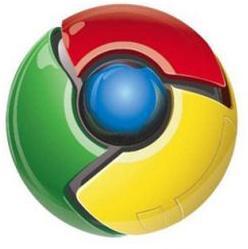
Two days ago, Google announced the Google Chrome OS (Operating System) project.
Google Chrome OS can be seen as Linux with a special window manager to only allow one application: the Google Chrome web browser. In essence, a computer running Google Chrome OS will only have one application, a web browser. This means that the user will only use web-based applications presumably (but not forcibly) from Google (e.g. Gmail, Google Docs, etc.)
Google will initially launch this OS on netbooks (those ultra small laptops with small screens.) Netbooks account for only a few % of the market and most people use them for browsing only so this seems a sensible strategy (it would have been stupid to launch the OS on full-fledged PCs as people would have immediately requested for “Photoshop on the web”.)
Our friend, Fake Steve, is adamant that building Google Chrome OS is not a good stategy for Google. In my opinion, he is correct when he questions the business logic of Google. You see, Chrome OS is going to be free (like most Linux distributions), has one good browser (like most Linux distributions), with good support for Google apps (like most Linux distribuions) but is going to be costly to build for Google (unlike most Linux distributions which exist already.) So why build yet another Linux distribution (which is what Google Chrome OS is in essence…) Why don’t Google use something which exists already?
What do you think?
It is a good strategy … MS is seriously considering to scrap Windows and develop Midori: http://news.softpedia.com/news/Life-After-Windows-Microsoft-Midori-Operating-System-88910.shtml … cloud computing is the future
Pingback: Linux User Group of Mauritius » What do you think of Google Chrome OS? - mauritius news
Le but de google et de faire un terminal web qui va correspondre à 70% des besoins des utilisateurs. C’est un excellent moyen de banaliser l’usage de l’informatique.
Linux quoi qu’on en dise peut être extrêmement compliqué, si Googls OS simplifie à l’usage unique d’un browser comme j’ai pu lire … trop facile, même mon grand-père va s’y mettre, de plus Google à déjà tout via web2.0, chat/mail/video/document/recherche/image/…. que demander de plus.
Aujourd’hui tout le monde à un téléphone portable (comment a-t-on pu vivre avant), demain TOUT le monde aura un ordinateur, et si Google contrôle … les publicitaires vont être de généreux contributeurs.
Ce n’est pas une réel concurrence car le but final n’est surement pas le même.
En tout cas, cela pousse les autres acteurs informatiques à innover encore plus. A tous les Geeks: sortez vos claviers !
Je suis d’accord. Google Chrome OS (qui est du vapourware pour l’instant…) va forcer tout le monde à innover.
Ce qui est quand meme cool est que la plupart des acteurs bougent vers Unix et/ou Linux (Android, Chrome OS, Palm Pre, iPhone, etc.) ce qui veut dire qu’on a gagné 🙂
Agreed!!!It’s a pain to develop an OS which has only a browser as APP. It’s expensive in terms of time and other resources. Having Chrome OS on mobile devices(HTC/etc..) would have been interesting and worth the efforts (I think). Google will then be able to promote it’s name and products on the world market..
Regards,
Yasir
Well I started reading fake Steve’s article but gave up after point 2 as I thought he was just ranting rather than trying to be objective.
Google is not the only company at it… check these guys out – http://www.jolicloud.com/
Google’s plan is simple. It just wants to get rid of Microsoft and the biggest blow to MS would be if there was a company out there that could give them a run for their money on the desktop side. Admittedly, Apple has a better desktop OS but its not very affordable.
A netbook with Google OS will cost around $60 less than one with Windows on. If we use Jolicloud as an example of how applications can be installed very quickly and we don’t have to pay for anti-virus, anti-spyware and anti-anything-else-you-want, then that could save you another $60. I’m sure that Google will optimise the OS to work very well with various Internet protocols to give the user a better experience as well. Re-write the TCP stack like Sun did on their Open Solaris OS and improve performance of data throughput.
End result – you save $120 on a netbook by not having to pay for the OS and security software as well as another $100 for not buying MS Office. You also end up with a machine that boots faster and performs better. You have to remember that the average computer user doesn’t know about free OS or free anti-virus software or open office, but if everything was on their netbook at the time of purchase, then they would use them as they are saving money.
Cloud computing has a few security issues at the moment but most of those should be resolved over the coming year or two. Using the netbook offline and having data stored/accessible offline is also crucial. Although downtime at Salesforce.com and Google Apps made headlines, I’m sure that people have had equal amount of downtime rebooting their PCs when Excel or IE crashed on them.
Thanks,
Roshan
You’re right. Whoever comes up with a cheap do-it-all device which runs on the cloud will win 🙂